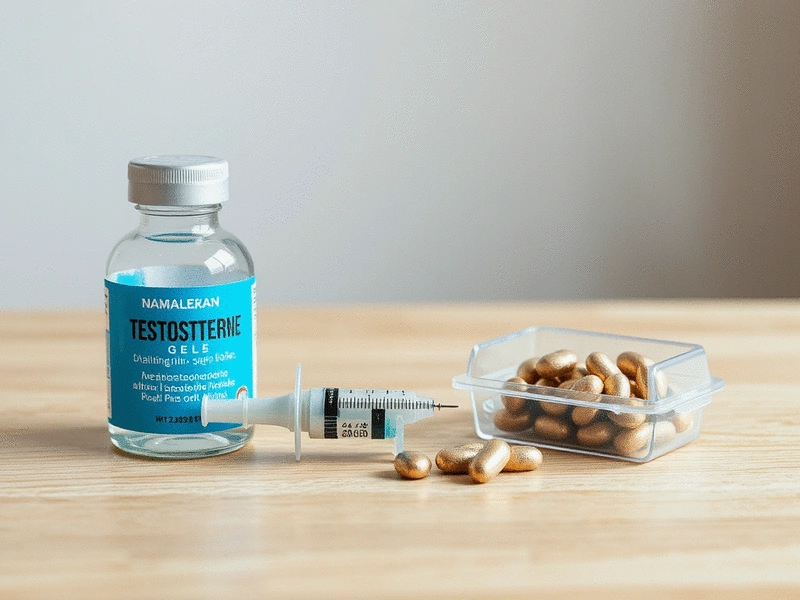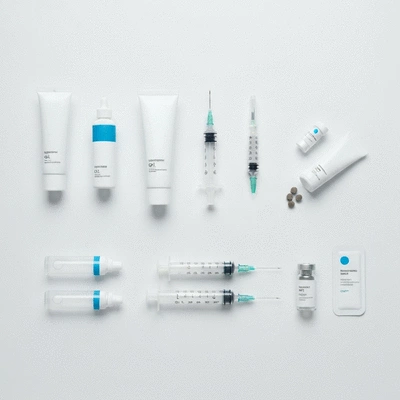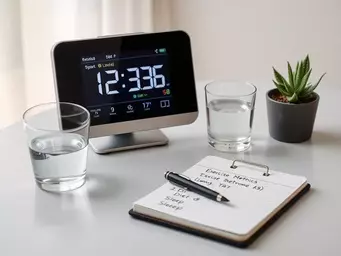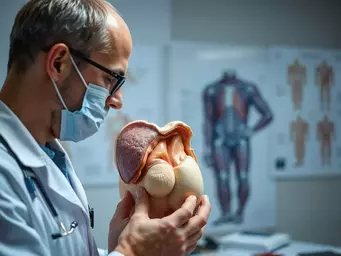Common Symptoms of Hypogonadism
- Fatigue or lack of energy
- Reduced muscle mass
- Decreased libido
- Difficulty concentrating
- Depression or mood swings
Have you been feeling unusually fatigued or experiencing a dip in your motivation? These could be signs of testosterone deficiency, a condition that often goes unnoticed. Understanding hypogonadism and its implications can empower you to take proactive steps toward improving your health and vitality.
Hypogonadism is a condition where the body doesn't produce enough testosterone. Recognizing symptoms and understanding treatment options are key to managing this condition.
Understanding hypogonadism might feel daunting, but I’m here to help you navigate through it! Hypogonadism is a medical condition characterized by the body’s inability to produce sufficient testosterone, a crucial hormone for many bodily functions. Recognizing its symptoms is the first step toward reclaiming your health. Have you experienced persistent fatigue, reduced libido, or difficulty concentrating? If so, you may be encountering signs of testosterone deficiency.
Here are some common symptoms of hypogonadism:
Identifying these symptoms early can lead you to effective treatment options that improve your vitality and overall well-being.
In simple terms, hypogonadism refers to a condition where the testes do not produce enough testosterone. This can occur due to various reasons, including genetic conditions, certain medical disorders, or lifestyle factors. It’s essential to look closely at these symptoms because they can profoundly impact your quality of life. Understanding how they relate to testosterone levels is crucial for anyone concerned about their hormone health. For more detailed insights into the causes and types of hypogonadism, you can refer to resources from the National Center for Biotechnology Information (NCBI).
Many individuals don't realize the cascading effects of low testosterone. Think of it as your body’s energy reservoir: when it runs low, every aspect of your life can feel affected. Timely intervention and treatment can help restore balance, which is where testosterone replacement therapy (TRT) comes into play.
Testosterone Replacement Therapy (TRT) is a treatment designed to restore testosterone levels to normal ranges. It can significantly improve quality of life for those diagnosed with hypogonadism. TRT comes in various forms, including gels, injections, and pellets, each with its pros and cons. The right choice often depends on individual preferences and lifestyle factors. Comprehensive guidelines on testosterone therapy are available from organizations like The Endocrine Society, providing valuable information for both patients and healthcare providers.
Here’s a quick overview of the different forms of TRT:
Choosing the right form involves considering factors like ease of administration, frequency of dosing, and individual lifestyle. I always encourage my patients to explore all options and understand how each aligns with their daily routines.
Low testosterone isn't just about feeling tired; it can have implications for various aspects of health. Research indicates that low testosterone levels are linked to increased risks of metabolic syndrome, obesity, and cardiovascular issues. For example, a study published in the Annals of Internal Medicine highlighted the potential health benefits of testosterone therapy in certain men. In essence, addressing testosterone deficiency can help safeguard against these potential health risks.
Moreover, restoring testosterone levels can lead to improvements such as:
By understanding low testosterone's implications, you can take informed steps toward seeking help and initiating a treatment plan. Remember, you’re not alone in this journey—reaching out to healthcare professionals who specialize in hormone health can provide you with tailored solutions that fit your unique needs.
Did you know? Incorporating regular physical activity and a balanced diet not only supports overall health but can also enhance the effectiveness of Testosterone Replacement Therapy (TRT). Engaging in strength training and eating nutrient-rich foods can help optimize your hormone levels, making your treatment journey even more successful!
Here are some common questions about hypogonadism and its treatment:
As we wrap up our discussion on hypogonadism treatments, it’s crucial to recognize the importance of tailored therapies that fit each individual’s needs. The journey towards managing testosterone deficiency can vary significantly from one person to another. Understanding the effectiveness of various treatment options is essential for making informed choices. Let’s highlight the key insights that can empower you on you
Here is a quick recap of the important points discussed in the article:



 What if the key to unlocking your vitality lies in understanding the hormones that influence your bo
What if the key to unlocking your vitality lies in understanding the hormones that influence your bo
 Recognizing that your environment can significantly influence your hormonal health is crucial. Have
Recognizing that your environment can significantly influence your hormonal health is crucial. Have
 Have you considered how fluctuations in your testosterone levels might affect your daily energy and
Have you considered how fluctuations in your testosterone levels might affect your daily energy and
 Trauma to the testicles can have profound effects on hormonal health, but understanding the causes a
Trauma to the testicles can have profound effects on hormonal health, but understanding the causes a